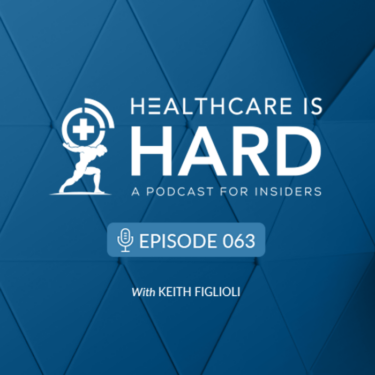
In most industries, innovation leads to an improved product or service while ultimately helping to lower cost. Healthcare is the exception. Despite a constant pursuit of new science, technology, operational efficiencies, business models and more, healthcare expenditures in the U.S. have continued to increase for decades with little sign of bending the cost curve downward.
What causes this phenomenon in U.S. healthcare, and what can we do about it? In their book, Why Not Better and Cheaper?: Healthcare and Innovation, twin brothers James B. Rebitzer and Robert S. Rebitzer offer answers to those questions.
Jim and Bob’s book brings together research on incentives, social norms, and market competition to argue that the healthcare system generates the wrong kinds of innovation. They contend that U.S. healthcare makes it too easy to profit from low-value innovations and too hard to profit from innovations that reduce the costs of care. As a result, we get a system where innovation abounds, but finding ways to deliver increased value at lower cost is remarkably ineffective.
In this episode of Healthcare is Hard, Keith Figlioli talked to Jim, a professor at Boston University’s School of Business, and Bob, National Advisor at Manatt Health, for an in-depth discussion about their work. Their conversation explored topics including:
- Misaligned incentives. Understanding how incentives work inside and between organizations has been a large focus of Jim’s career in economics, and he now applies that work to the complex world of healthcare. As an example of that complexity that’s all too common, Bob shared a story of a scientist and entrepreneur he advised who had developed a quick and inexpensive way to change how people walk in order to reduce pressure on the knee. While this could defer or obviate the need for common and expensive knee replacement surgeries, he discussed how difficult it would be to turn this idea into a profitable business since organizations across the healthcare ecosystem lack proper incentives to pay for it. He discussed why gain sharing would be the solution in every other part of the economy, and why it doesn’t work in healthcare.
- The fourth vital sign of healthcare. People generally think of the healthcare system as having three vital signs – cost, quality and access. But Jim and Bob see a fourth vital sign that, so far, hasn’t been recognized. In the long sweep of history, they say innovation matters just as much as the other three vital signs and stress that part of a healthy system should be the ability to produce innovations that increase value to patients while lowering costs.
- Innovation vs. irrational finance. In order to truly unlock innovation does the country’s irrational finance and insurance system need to be fixed first? Bob and Jim share their thinking around this debate and their ultimate conclusion: not necessarily. Bob compares healthcare innovation to walking uphill in a fog… you never know when you’re going to reach the top, but all you can do is place your foot in a somewhat higher place than it was before.
To hear Keith, Bob and Jim discuss these topics and more, listen to this episode of Healthcare is Hard: A Podcast for Insiders.
